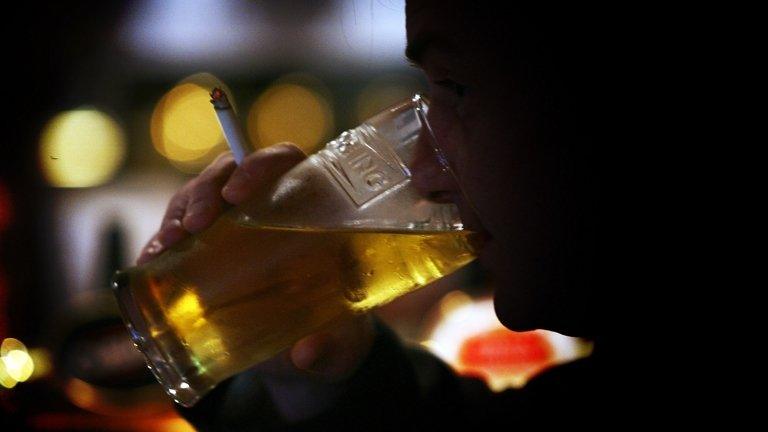Problem drinking in Jersey costs public £537k in a year
- Published
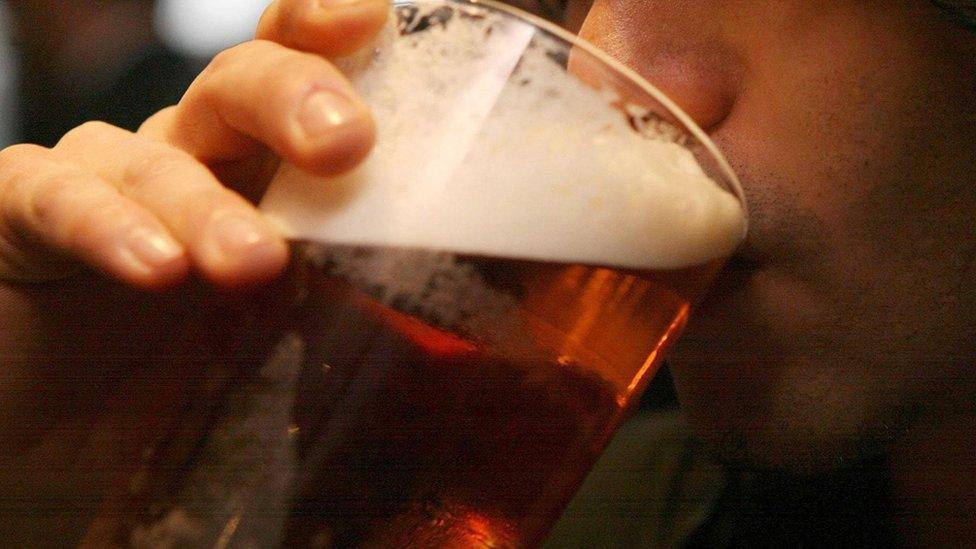
Men are more likely to drink a dangerous amount of alcohol than women in Jersey according to the statistics
Jersey taxpayers spent £537,000 to support people with drinking problems in 2020.
New figures from the Public Health Intelligence Team, external showed, on average, islanders consumed far more than people in England.
Men were more likely to drink a dangerous amount of alcohol than women in Jersey, according to the statistics.
But the amount Jersey islanders consumed had steadily fallen by 16% in the past 10 years, the team added.

Key findings included:
In 2020, the Social Security Department spent £537,400 on 121 benefit claims due to alcohol-related sickness and ailments
The Social Security Department expenditure on benefits due to alcohol-related ailments accounts for about 1% of the total benefit expenditure in 2020
In 2019, the average alcohol consumption per adult was 17% higher in Jersey (11.5 litres per year) than in the UK (9.8 litres per year)
Fewer Jersey adults were teetotal in 2021 (14%), compared to England (20%)

The figures meant those drinking most were consuming, on average, the equivalent of eight pints of beer, or two-and-a-half bottles of wine each per week; equating to about 11.5 litres of pure alcohol per year.
That was about 17% more than those in England, health bosses said.
To keep health risks from alcohol to a low level NHS guidelines recommend, external men and women not to drink more than 14 units a week on a regular basis - roughly six pints of average-strength beer or 10 small glasses of lower-strength wine.
Alcohol also played a role in almost one-in-five of all crimes recorded in Jersey in 2020.
It was a factor in about 30% of assaults and serious assaults, and about 40% of domestic assaults, the figures said.
However, the report also showed the number of young people in Jersey who did not drink had doubled over seven years.
Rates of teetotalism in 16 to 34-year-olds had "changed most dramatically" between 2014 and 2021, the report said, increasing from 8% to 17%.

Follow BBC Jersey on Twitter, external and Facebook, external. Send your story ideas to channel.islands@bbc.co.uk
Related topics
- Published7 March 2016
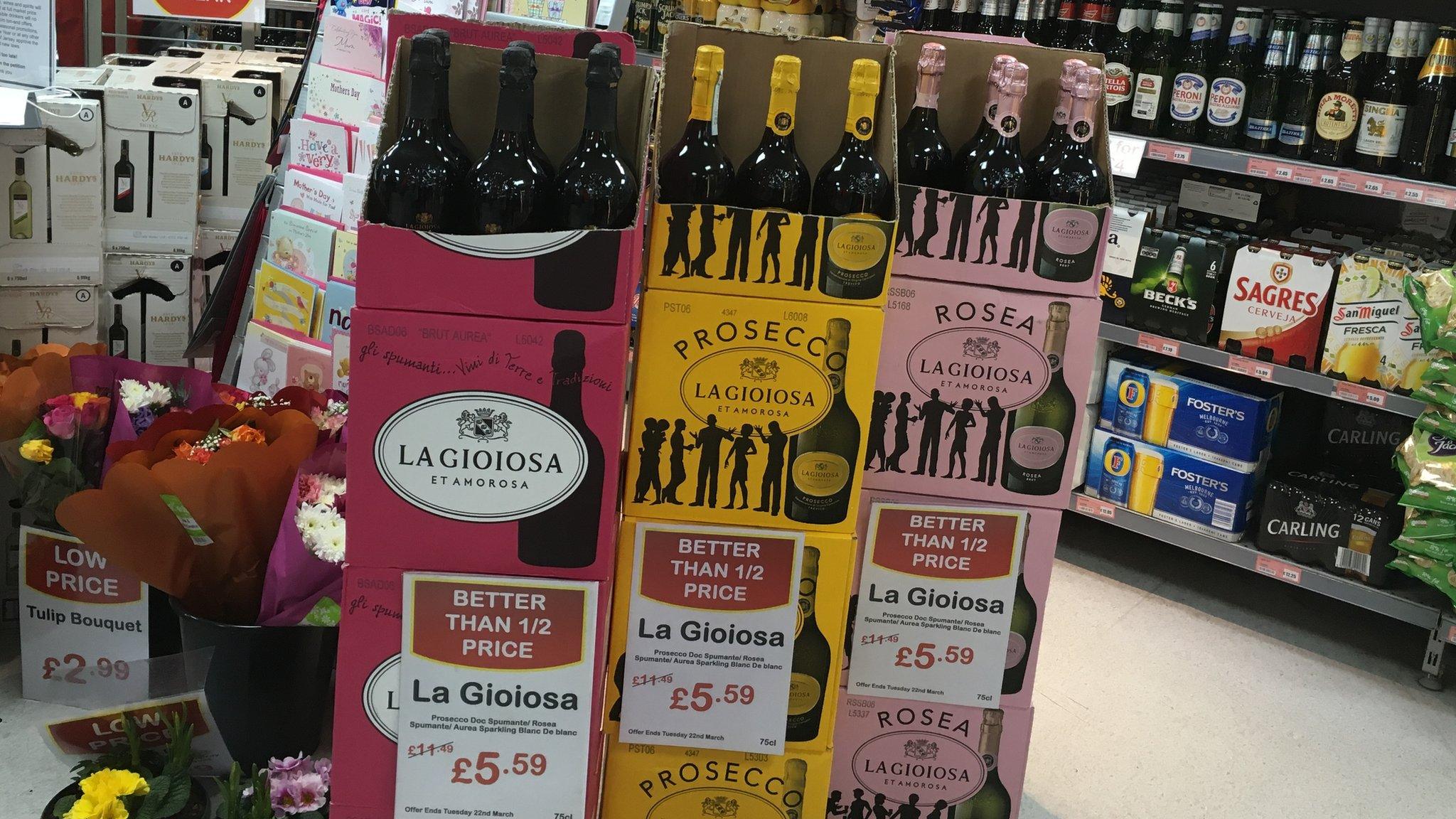
- Published1 December 2013
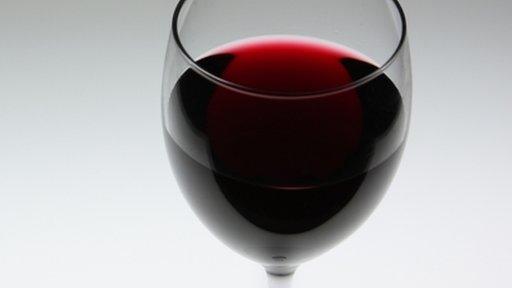
- Published31 May 2016
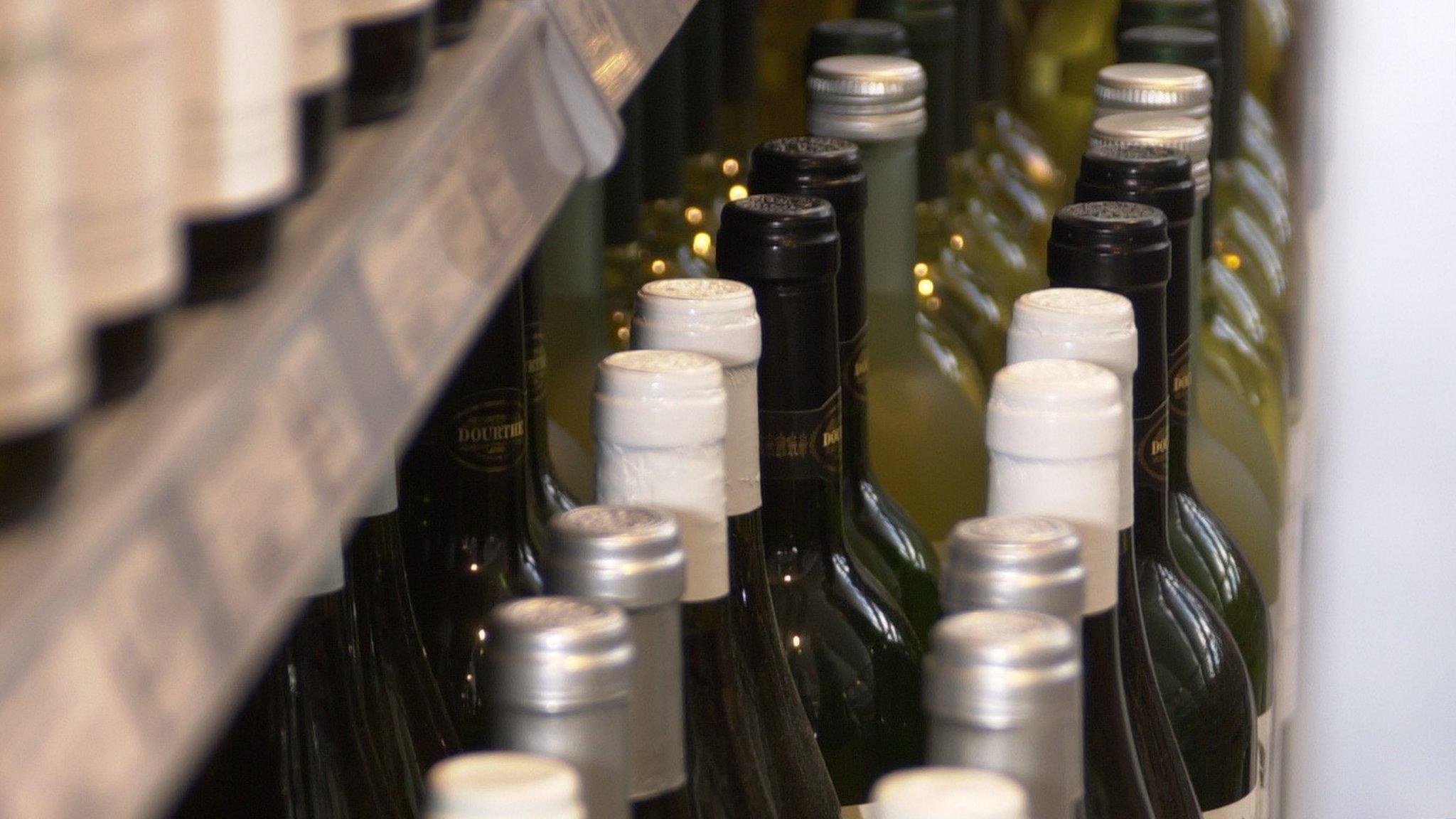
- Published23 November 2012
